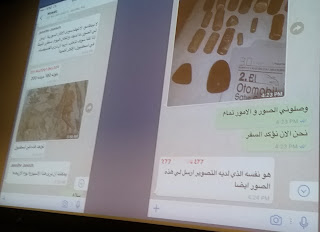State Attorneys General Should Address the Scam of Illegal Antiquities in the Marketplace
State attorneys general should address the ballooning scam of criminals using the art and antiquities marketplace to sell faked, forged, looted, stolen, and smuggled cultural property. This hijacking of the trade presents a widespread consumer protection problem that demands a concerted law enforcement response.
Private collectors and museums benefit from an artifacts trade that operates in a free market, providing an opportunity for stewardship of cultural treasures. Honest dealers, auction houses, and collectors should work together to protect the marketplace from criminal activity. But when fraudsters, fences, and hustlers regularly pollute the stream of commerce with fake artifacts, blood antiquities, and contraband cultural heritage that fail to be uncovered by industry due diligence (or the lack thereof), then public enforcement officials need to shore up the integrity of the marketplace so that it is not overrun by an illegal shadow economy, which fuels money laundering, terror financing, and other major crimes.
The US is the largest art and antiquities market in the world, and Wall Street Journal reporter Georgi Kantchev on Wednesday described how crooks use e-commerce to sell illicit antiquities to unsuspecting buyers.
In July, Oxford senior research fellow Dr. Neil Brodie published an Antiquities Coalition think tank paper specifically highlighting this risky internet trade, warning:
While an internet shopper may indeed be purchasing a real antiquity that was scientifically excavated in accordance with national law, and left its country of origin with a valid export permit, the odds are much greater of purchasing a trafficked or fake object. [B]uyers also risk the possibility of unintentionally supporting the organized criminals, armed insurgents, and violent extremist organizations who are known to deal in antiquities.
Syrian archaeologist Dr. Amr al-Azm, who spoke at last month’s conference on Preserving Cultural Heritage in Times of Conflict, showed screen shots (seen here) of a mobile phone application being used to sell an ancient mosaic and cylinder seals, saying “This is an example of how some of this stuff gets traded.” “We get these messages going on back and forth all the time.”
The sale of faked and trafficked cultural objects is big, requiring probing scrutiny and direct intervention by top prosecutors. “On any given day there are at least 10,000 antiquities and ancient coins for sale online, with an estimated total asking price of over $10 million,” Dr. Brodie’s paper reports. That is why CHL renews its call for consumer protection action by state attorneys general.
The National Association of Attorneys General’s standing committee on consumer protection, headed by AG Peter Kilmartin of Rhode Island and AG Doug Peterson of Nebraska, should undertake the task of the “development of effective consumer protection programs and education for the protection of citizens and increasing consumer awareness” (in line with the NAAG’s mission statement) in order to stop the sale of fraudulent and illegal cultural artifacts. Each year the NAAG holds its spring consumer protection meeting in Washington, DC, presenting an ideal opportunity to start developing a coordinated solution to tackle this urgent problem. Its next meeting is scheduled for May 2018.
Consumer protection laws are designed to uncover deceptive, unfair, unconscionable, and unlawful business practices. The states’ top prosecutors wield civil and criminal tools authorized by consumer protection statutes to investigate wrongdoing in the marketplace. In New York, for example, the heart of America’s antiquities market, General Business Law § 349(a) forbids “[d]eceptive acts or practices in the conduct of any business, trade or commerce or in the furnishing of any service in this state,” and Executive Law § 63(12) gives the attorney general power to investigate and issue subpoenas.
Text and original photos copyrighted 2010-2017 by Cultural Heritage Lawyer, a blog commenting on matters of cultural property law, art law, cultural heritage policy, antiquities trafficking, museum risk management, and archaeology. Blog url: culturalheritagelawyer.blogspot.com. Any unauthorized reproduction or retransmission without the express written consent of CHL is strictly prohibited. Visit www.redarchresearch.org.



